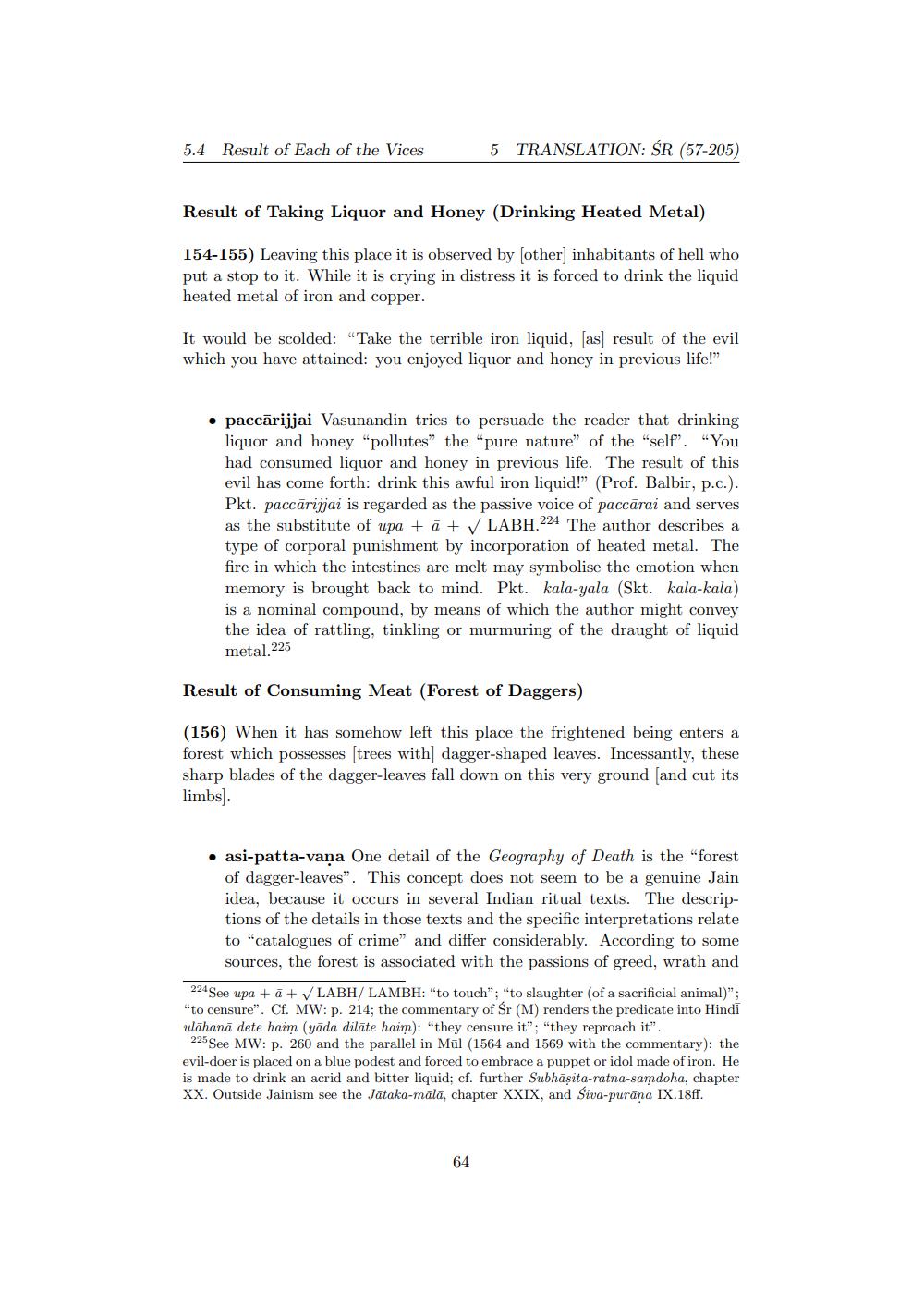________________
5.4 Result of Each of the Vices
5 TRANSLATION: ŚR (57-205)
Result of Taking Liquor and Honey (Drinking Heated Metal)
154-155) Leaving this place it is observed by other inhabitants of hell who put a stop to it. While it is crying in distress it is forced to drink the liquid heated metal of iron and copper.
It would be scolded: "Take the terrible iron liquid, as result of the evil which you have attained: you enjoyed liquor and honey in previous life!"
paccārijjai Vasunandin tries to persuade the reader that drinking liquor and honey "pollutes" the "pure nature of the "self". "You had consumed liquor and honey in previous life. The result of this evil has come forth: drink this awful iron liquid!" (Prof. Balbir, p.c.). Pkt. paccārijjai is regarded as the passive voice of paccārai and serves as the substitute of upa + a + LABH.224 The author describes a type of corporal punishment by incorporation of heated metal. The fire in which the intestines are melt may symbolise the emotion when memory is brought back to mind. Pkt. kala-yala (Skt. kala-kala) is a nominal compound, by means of which the author might convey the idea of rattling, tinkling or murmuring of the draught of liquid
metal.225
Result of Consuming Meat (Forest of Daggers)
(156) When it has somehow left this place the frightened being enters a forest which possesses (trees with] dagger-shaped leaves. Incessantly, these sharp blades of the dagger-leaves fall down on this very ground and cut its limbs).
• asi-patta-vana One detail of the Geography of Death is the "forest
of dagger-leaves". This concept does not seem to be a genuine Jain idea, because it occurs in several Indian ritual texts. The descriptions of the details in those texts and the specific interpretations relate to "catalogues of crime" and differ considerably. According to some sources, the forest is associated with the passions of greed, wrath and
224See upa + a + LABH/LAMBH: "to touch"; "to slaughter of a sacrificial animal)"; "to censure". Cf. MW:p. 214; the commentary of Sr (M) renders the predicate into Hindi ulāhanā dete haim (yāda dilāte haim): "they censure it"; "they reproach it".
225See MW: p. 260 and the parallel in Mül (1564 and 1569 with the commentary): the evil-doer is placed on a blue podest and forced to embrace a puppet or idol made of iron. He is made to drink an acrid and bitter liquid: cf. further Subhasita-ratna-samdoha, chapter XX. Outside Jainism see the Jātaka-mālā, chapter XXIX, and Siva-purāna IX.18ff.
64




